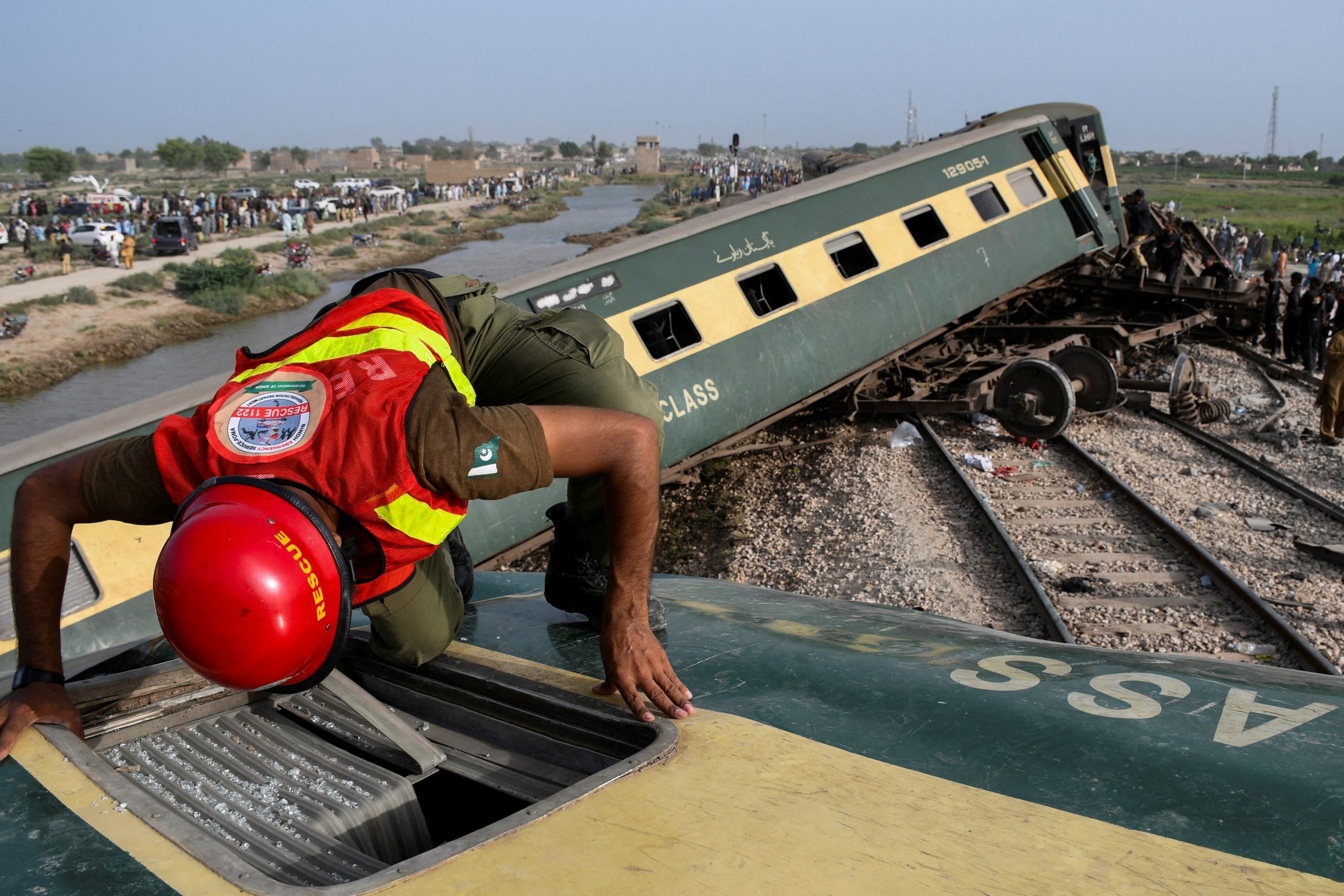- Monday, May 06, 2024
Around 1,000 passengers were travelling in the train when 10 of its 19 compartments derailed

By: Chandrashekar Bhat
AT LEAST 30 people were killed and 80 others injured on Sunday (6) after several compartments of an express train derailed in Pakistan’s southern Sindh province, in the latest rail disaster to hit the country.
The Hazara Express, travelling from Karachi to Rawalpindi derailed in Nawabshah district near the Sarhari Railway Station, 275 kilometres from the provincial capital Karachi.
Railways minister Saad Rafiq said the top priority for railway authorities was to complete the rescue and clearance operations. He said an inquiry would be conducted to find out the cause of the accident.
Sindh chief minister Syed Murad Ali Shah said the injured could be shifted to Karachi if needed and directed the local administration and health officials to expedite relief and rescue efforts.
He said around 1,000 passengers were travelling in the train.
The driver of the Hazara Express told Geo News that the speed of the train was around 50 kilometres per hour (31 miles per hour) when 10 out of 19 compartments went off the track one after the another.
The speed limit on the line was 105 km per hour (65.2 mph) “so we were well within the speed limit. I have no idea what happened,” he said.
Pakistan Railways’ Sukkur divisional commercial officer Mohsin Siyal said 15 bodies were retrieved from the wreckage and the rescue work, aided by the Pakistan Army, was continuing.
Television channels showed the crash site with train compartments badly damaged.
The state-run Radio Pakistan reported that the Pakistan Army and Rangers were involved in relief and rescue activities at the accident site.
Additional troops were called in to assist the rescue operation.
Railways accidents occur frequently in Pakistan due to outdated track maintenance systems, signal issues, technical equipment and old engines. Pakistan’s Railway system covers around 7,500 kilometres (4,660 miles).
Sindh has seen the worst railway accidents with the worst train disaster taking place in 1990 near Sukkur when 307 people were killed.
Sunday’s accident came just a day after three coaches of Allama Iqbal Express – travelling from Karachi to Sialkot – derailed, but no one suffered injuries.
In April, seven people were killed when a fire broke out in a bogie of the Karachi Express travelling from Karachi to Lahore near Tando Masti Khan in the Khairpur district of the southern Sindh province.
On June 7, 2021, 32 people were killed and 64 injured after two express trains collided in Sindh’s Ghotki.
In February 2020, 19 people were killed when a train collided with a passenger bus near Sindh’s Rohri station.
(PTI)